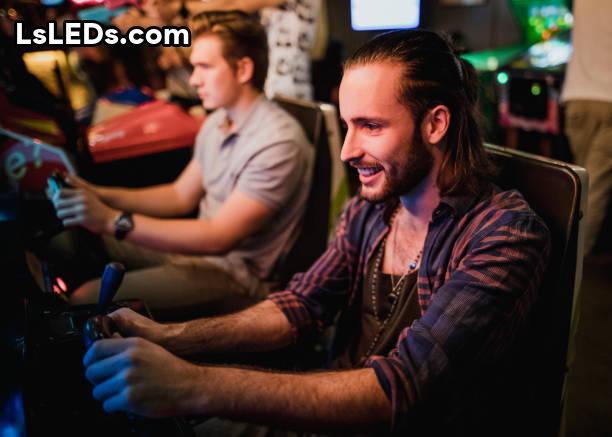
Table of Contents
How do you practice a drag racing tree?
What is a practice tree race?
Many racers have found a way to fulfill their need for competition and socializing by attending practice tree events. Each competitor has the option of using a delay box or a full three-amber tree to fine- tune their reaction times.
How do you stage in drag racing?
Roll the car up until the stage lights come on, then move forward slowly until the stage lights go out. If you put more of your front tires ahead of the stage beam, you will have less tire that needs to go through the stage beam in order to start the clock.
What is a good reaction time on a pro tree?
The 500 reaction time is very good. The four tenths delay of the Pro Tree makes a difference. The reaction timer stops when the car leaves the start line.
What is deep staging?
Rolling forward enough to turn off the pre stage light is called deep staging. The thought is that you’re closer to the finish line than your opponent.
Is there an app for drag racing?
Drag Racing is the most popular racing game in the world, with over 100 million players around the globe. Drag Racing is available on a number of platforms.
How do you download drag racing?
Drag Racing can be downloaded and played on your desktop or laptop with a mobile application.
Can you drag race legally?
To drag race legally, you need a valid license, a car that is in working order and complies with all traffic law requirements. Personal safety equipment must be worn during a race.
Is there an app for 1/4 mile times?
You can use the gps race timer to measure your vehicle’s speed. The app can measure up to two times per race for drag races and 100 to 200 km/h speed races. It is possible to save the race results on your phone.
How old do you have to be to drag race?
Participants who are at least 13 years old can participate through their 16th birthday if they are licensed. All runs must be made with an approved licensed supervising adult who is at least 25 years of age and has a valid state driver’s license.

How do you practice reaction time in drag racing?
What is a good reaction time for drag racing?
It’s considered a perfect Reaction Time if it lasts 400 seconds. You will be disqualified if you leave too early. If you leave too late, you can give your opponent a head start that you can’t overcome.
What is the best RT in drag racing?
You want it to be close to. 500 is a good number. You’ve just been red lighted if you react quicker than that. You can see the elapsed times at 60 foot, 330 foot, 660 foot or eighth mile.
Does reaction time matter in drag racing?
The time of reaction doesn’t have an effect on the program. The time it takes from the green light to the start is called reaction. The package is when you add those 2 numbers. Racer stage closer to the starting beam to get a quicker reaction.
At what age is reaction time fastest?
You can assure people that their feelings are not ridiculous if they complain that they feel old. Researchers found that the brain’s response time begins to decline at the age of 24 after studying over 3000 people.
What is a pro tree in drag racing?
The Pro Tree is when all three amber lights flash at the same time, followed by the green light. Dragsters, Funny cars, and other types of cars can be seen at the Sportsman Tree.
How does the tree work in drag racing?
The Christmas tree is used to start drag races. Each large amber light will be accompanied by a. 500 second delays in between them, followed by a green light.
What is a .400 pro tree?
There is a pro tree. There is a tree. The stage in the “Pro Tree” is the same as the one in the “Sportsman Tree”, but the three amber lights at the same instant are different. It was four seconds later.
What is the tree in racing?
Depending on the type of racing, all three large amber lights will flash simultaneously, followed four-tenths of a second later by the green light, or the three bulbs will flash simultaneously, followed five-tenths of a second later.
What do the lights mean in drag racing?
Depending on the type of racing, all three amber lights will flash simultaneously, followed by four-tenths of a second later by the green light, or the three bulbs will flash concurrently, followed by five-tenths of a second later by the green light.
